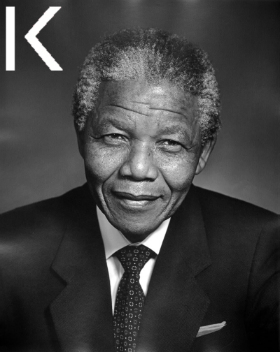
One of the most quoted men in the world, said as a young man that he, “still lacked confidence as a speaker, and was intimidated by the eloquence of so many.” Looking at the life of Nelson Mandela it is hard to imagine him lacking confidence or eloquence. And, yet he did.
Yesterday, Nelson Mandela passed away and my dream of meeting him in person died as well. Ironically, it seems like only yesterday, that I was presenting the distillation of what Nelson had taught me to my college peers on a rafting trip on the Green River in Desolation Canyon, deep in the wilderness of Utah. Although I never met him in person, he influenced my life tremendously; taking me on a wild African journey from the Transkei to Johannesburg to Robben Island through his 630-page autobiography Long Walk to Freedom.

Every influential leader will ultimately be a great communicator. Leadership and communication are inseparable. In the best selling book of all time, a man named Solomon wrote that “Wisdom is the principal thing. In all your getting, get wisdom.” If you want to become an influential leader become a great communicator. Learn the wisdom of communication: both the art and the skill.
How did Nelson become a great communicator? How did he acquire the wisdom of communication? These are some gems that I learned from Nelson.
Nelson’s Lesson From A Donkey
Of the hundreds of stories that Nelson told one has been seared into my mind more than all of the others. While playing games as a young boy he experienced the pain of being unseated by a donkey and the even more painful social humiliation of losing face among his friends. Africans have a highly developed sense of dignity comparable to what the Chinese call “face”, and Nelson learned that to humiliate a person is to make him suffer an unnecessary cruelty. As a very young boy playing games with his friends he realized he could defeat his opponents without dishonoring them. Nelson taught me that all communication begins with honor.
Counselor To The Royal Heir
A little known fact about Nelson is that at the age of nine after his father died he was essentially adopted by the Regent of the Thembu people. He was raised in the royal courts of the Regent and experienced wealth and order beyond his imagination. (Remember wealth is not a dollar amount -but a lifestyle that is markedly greater than the people around you. By African standards, Nelson lived in great wealth). He was born a Xhosa to the Thembu royal family and was destined by the Regent to be a counselor to the heir to the royal throne.
Despite his intimate experience with wealth and royalty, Nelson later experienced dire poverty as a young lawyer making his way in the world. He walked six miles morning and night to work to save money. He went days without more than a mouthful of food and without a change of clothes. He wore one suit for almost every day for five years. Ultimately, there were more patches than suit. Reading between the lines of Nelson’s life I discovered that Nelson became a great communicator because he experienced both extreme poverty and humiliation in addition to abundant wealth and significance. Nelson taught me that great communicators are extremely humble and yet simultaneously know that they are extraordinarily significant.
Shepherds Lead From Behind
Nelson himself was mentored by a renowned leader and communicator. He spent hours and endless days watching the Regent and how he governed through consensus at tribal court meetings. If you know anything about leading people, you will know that anyone can be a dictator, but rarely is there lasting fruit. Conversely, building consensus and facilitating dialogue is extremely difficult, but generally the fruit is rich and long lasting.
The lessons Nelson learned from the Regent profoundly influenced him and his notions of leadership. Ultimately, he concluded that, “a leader is like a shepherd. He stays behind the flock, letting the most nimble go out ahead, whereupon the others follow, not realizing that all along they are being directed from behind.” Nelson taught me to lead from behind.
Effortless Communication
Communication is a skill that is learned like everything we learn from the time we are born. Most people learn the essentials of communication and can lead people if necessary. Others refine their skills and distinguish themselves as strong communicators and valuable leaders. However, very few will effortlessly communicate and become masterful leaders who change the course of history. If you want to be a change-maker and leave an unprecedented legacy then learn from Nelson: all communication begins with honor, become both extremely humble and extraordinarily significant, and learn to lead from behind.
